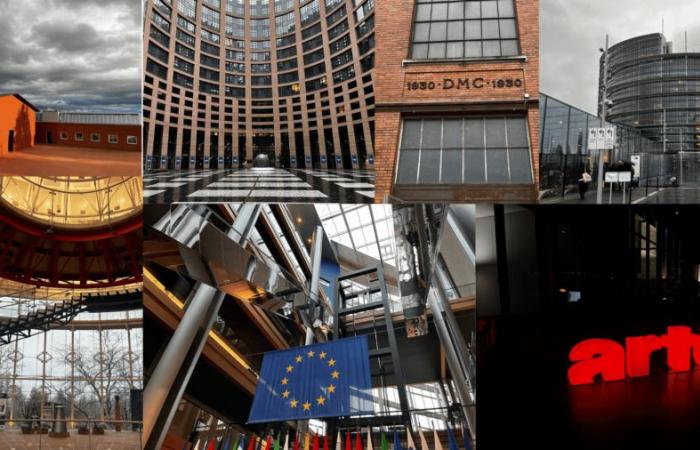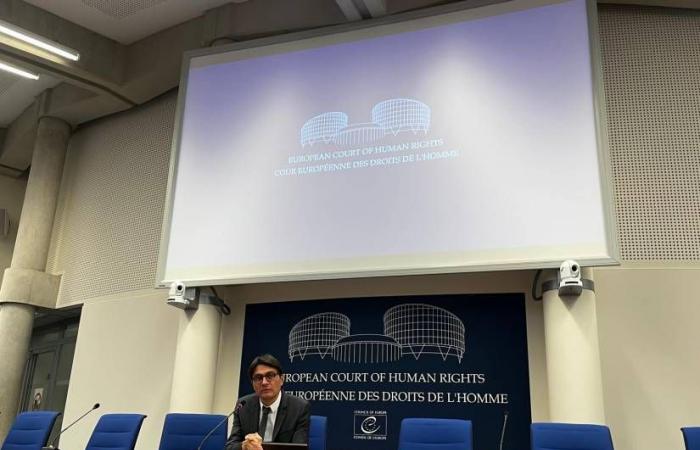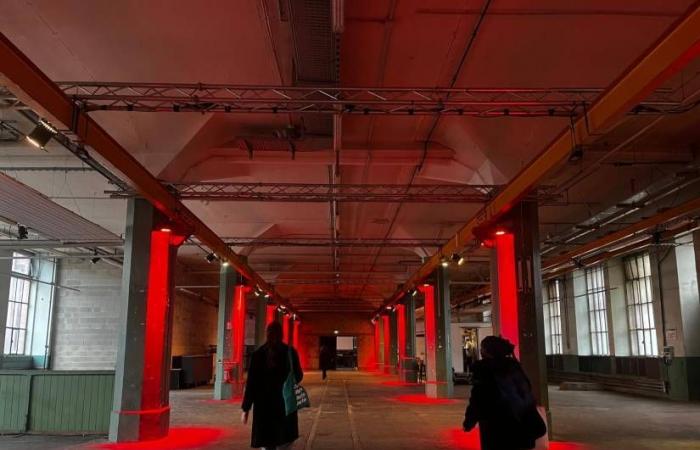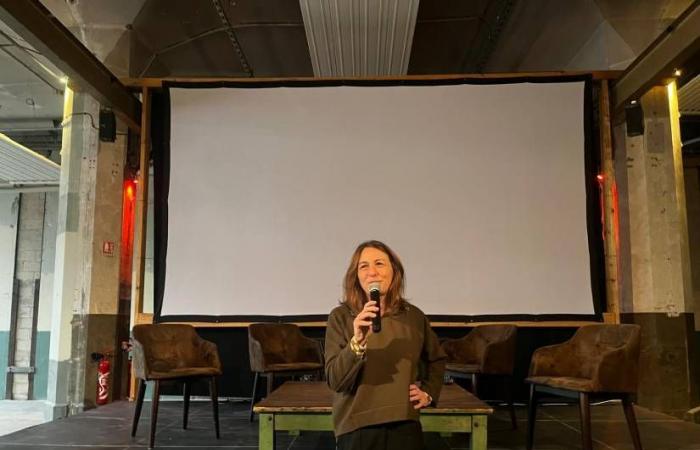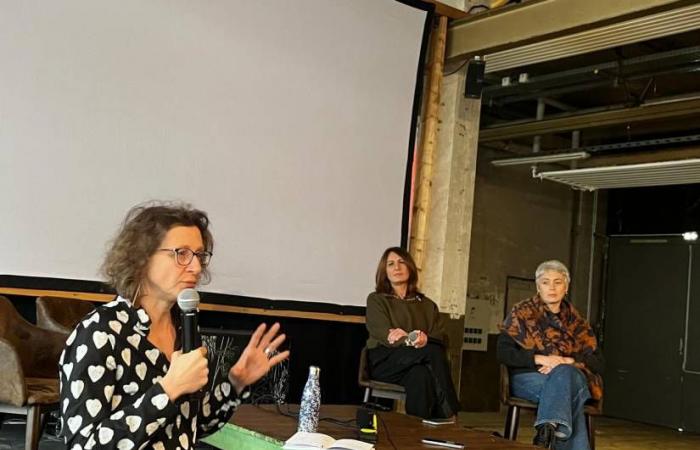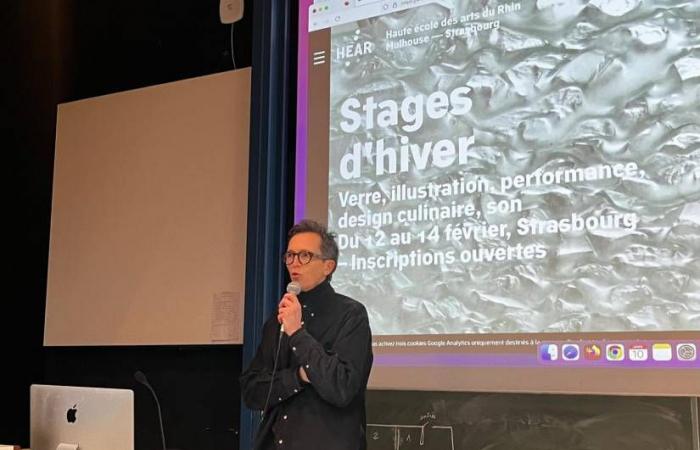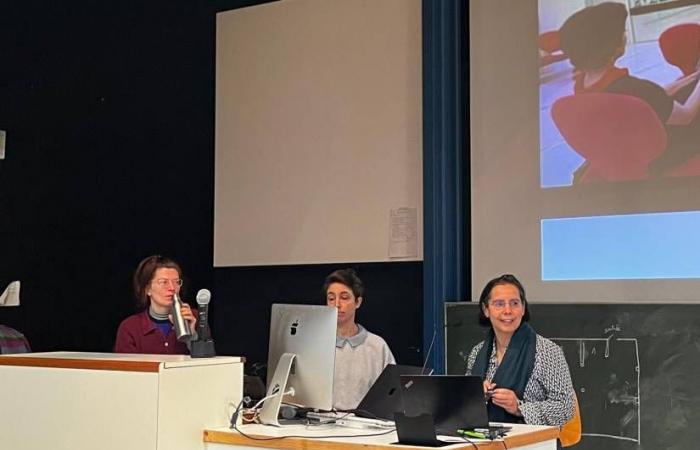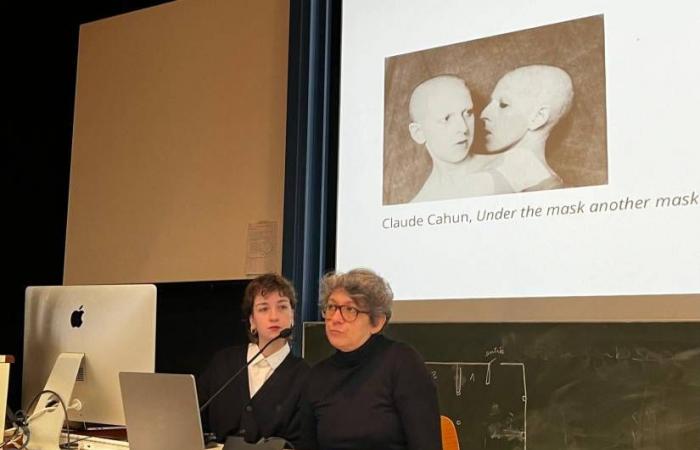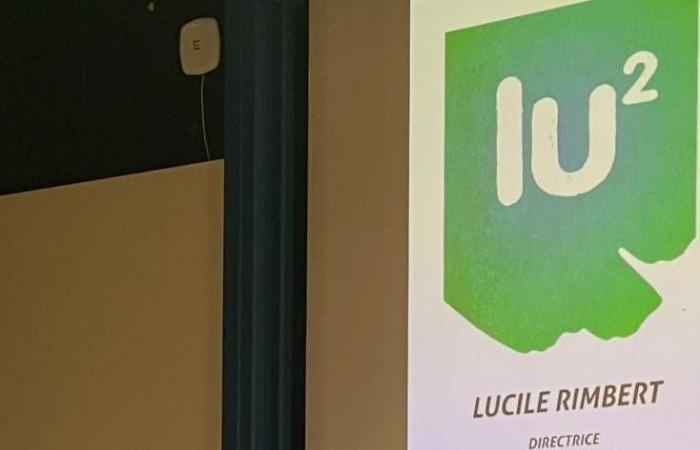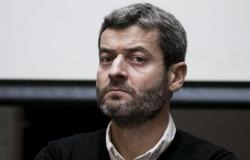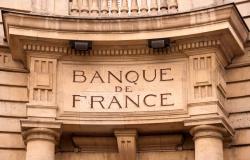DAY 1 – Strasbourg, at the center of European issues
During this first day, the listeners were able to approach very concretely, with words from the actresses and actors involved, European issues, and the role of culture as a common base.
Fabienne Keller at the European Parliament in Strasbourg
First at the European Parliament, with Fabienne Keller, MEP, quaestor of the European Parliament and former mayor of the city of Strasbourg who, after leading, for the participants, a tour of the Parliament, reviewing its functioning and its history, spoke on the theme “Culture, common language”.
Judge Mattias Guyomar at the European Court of Human Rights
Then at the European Court of Human Rights with an intervention by Judge Mattias Guyomar, around the organization and the role of the ECHR on the one hand, and the problem of “Culture and rule of law” on the other hand, allowing a perspective, nourished by concrete cases on these two aspects.
At ARTE where, after a visit to the studios and the management allowing a concrete approach to the specificity of the channel and its businesses, Ingrid Libercier, member of the Management Committee and director of programs, and Marysabelle Cote, member of the Committee of management and director of management returned to the questions of programming and binational Franco-Germanic management as well as the prospects for developing programming in partnership with other European countries.
Finally, with the joint insights of Juliette Prissart, general delegate of Eurocinéma and Aurélie Champagne, deputy director of legal and European affairs at the CNC, which made it possible to understand the challenges of French and European cinema internationally as well as the promotion and the defense of our model of exception and cultural diversity.
DAY 2 – Artistic creation, new places for culture

Entrance hall of Motoco in Mulhouse
The second day of this module began at MOre TO COme (Motoco), a place of creation installed in a former DMC (textile industry) building reconfigured with a view to welcoming artists and creators.

Martine Zussy at Motoco
Martine Zussy, its director, presented the spaces and the history of the place, also giving an overview of its plans for the future, followed by a visit to the Motoco and meetings with the artists.
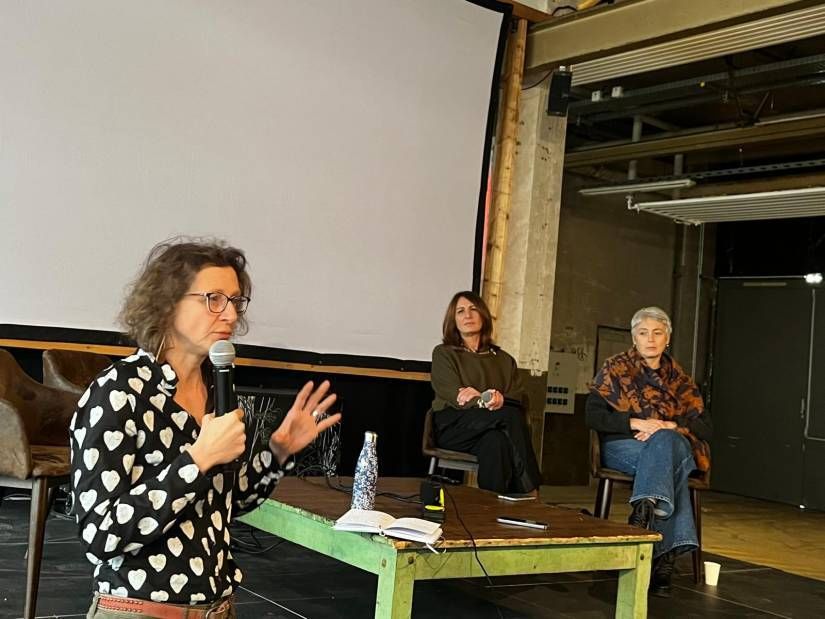
© Ministry of Culture, January 2025
This continued with a round table on the plurality of models, with Martine Zussy, Sandrine Wymann, director of the Kunsthalle Center d’art and Amélie Desloire, director of Ecurey Pôle d’avenir (and listener of the Session 24-25 of CHEC).
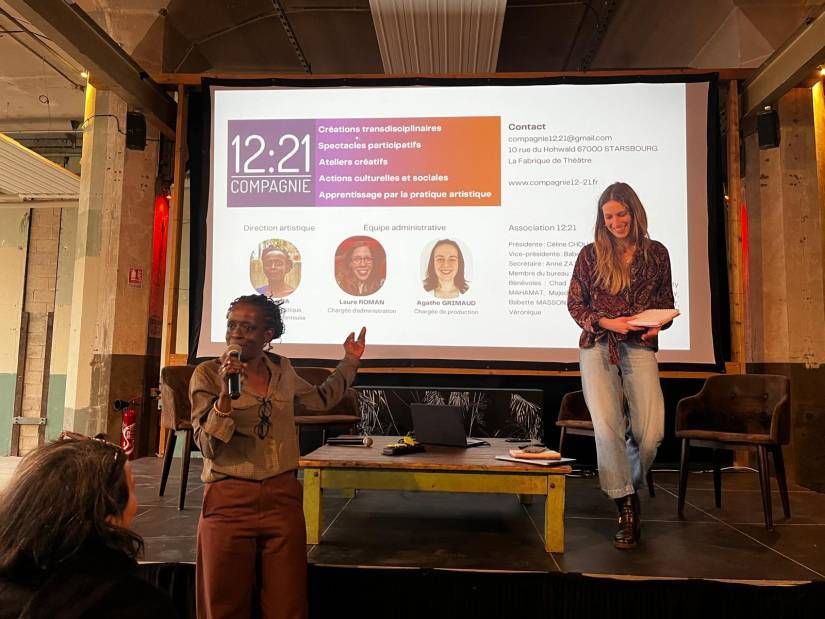
Fatou Ba and Laura Haby at Motoco
The morning ended with a presentation of a joint project between Fatou Ba, storyteller, director (and listener of Session 24-25), and Laura Haby, artist, in residence at Motoco, allowing us to highlight in a way embodied the possibilities of creation and local collaborations.
The day continued with a visit to the VITRA CAMPUS in Weil am Rhein, a unique architectural site combining innovation and design. Isabelle de Ponfilly, President of OFISU, former general director of Vitra France, accompanied the group and commented on the visit to the various buildings on the Campus.
Finally, the day ended at La Filature, the national stage in Mulhouse. Benoît André, its director, returned to the issues involved in such a cultural place, hosting both a national stage, an opera (Opéra national du Rhin), a symphony orchestra (Mulhouse Symphony Orchestra), and a media library.
DAY 3 – Identities and otherness, questions for artistic creation
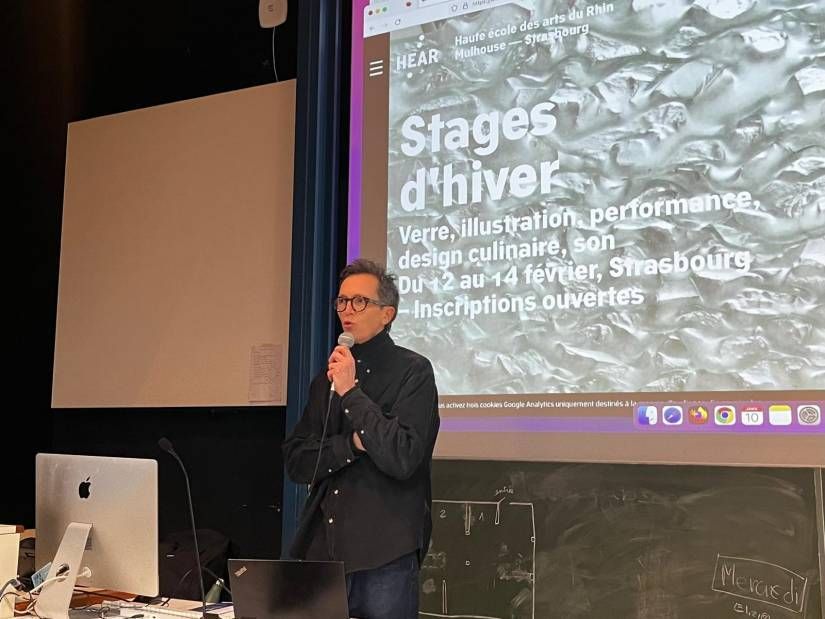
Stéphane Sauzedde at HEAR in Mulhouse
The third and final day of module 5 of CHEC Session 24-25 took place at the Haute école des arts du Rhin (HEAR). Stéphane Sauzedde, its director, presented the different actions, the place of questions of identity and otherness in the training of students, finally insisting on its close link with living things and nature, an essential component of the identity of the HEAR.
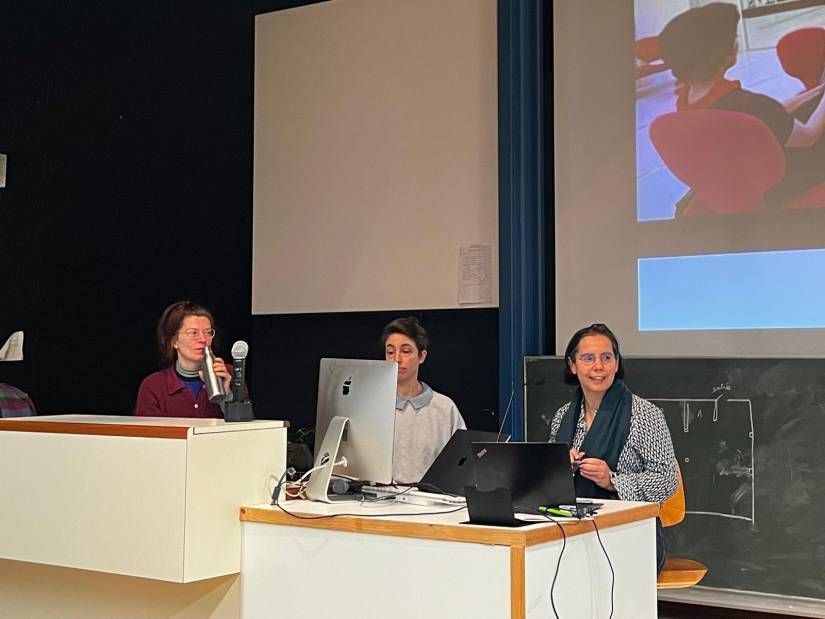
Nathalia Moutinho, Daria Ayvazova, and Cléo Huet at HEAR
Following him, Nathalia Moutinho, Daria Ayvazova, and Cléo Huet, teachers at HEAR, returned to this question of the new relationship with the living for artists and its variation in the “rehabilitative design” option in which they teach.
This last day of the module ended with the presentation of two experiences and achievements:

Myriama Idir and Agathe Pinet at HEAR
First with the Utopi·e prize, promoting works from the LGBTQIA+ artistic scene, and putting into perspective the place of queer in creation, with its two initiators, Myriama Idir (listener of Session 23-24 of CHEC) and Agathe Pinet.
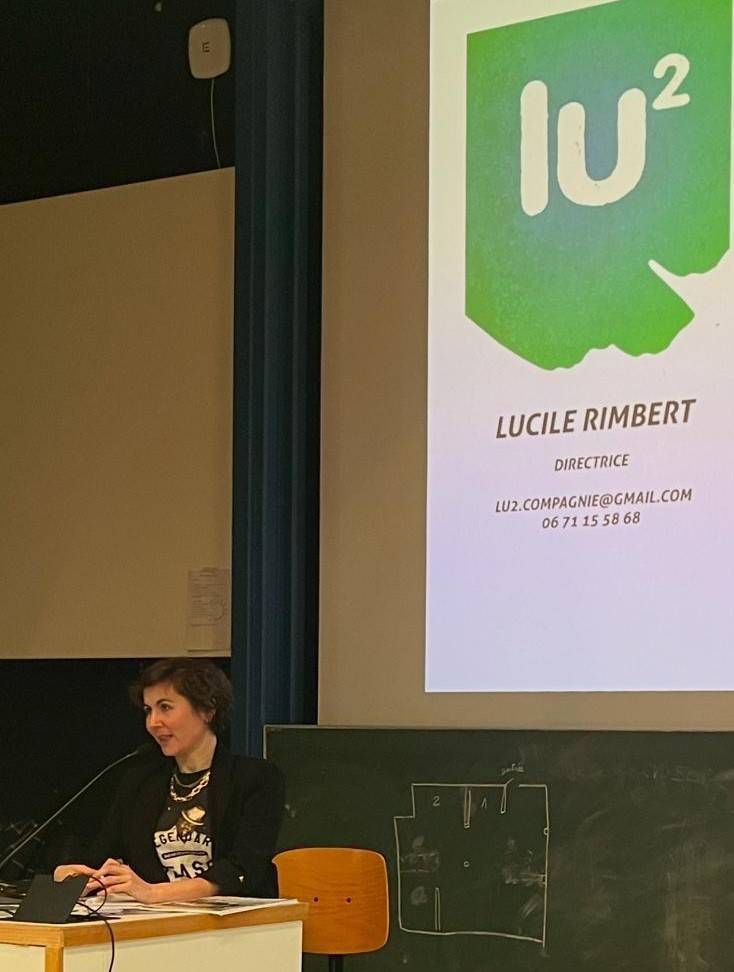
Lucille Rimbert at HEAR
Then with Lu²’s action in terms of art and urban requalification carried out taking into account the views of residents, and in conjunction with different operators (including social landlords), presented by Lucile Rimbert, its artistic director (and auditor of CHEC Session 22-23).
From Strasbourg to Mulhouse, exchanges with institutional, artistic and cultural actors have highlighted the importance of culture as a space for dialogue, creation and participation. Through its visits and interventions, this module confirmed the central role of artistic creation in reflection on identities and societal transformations.

